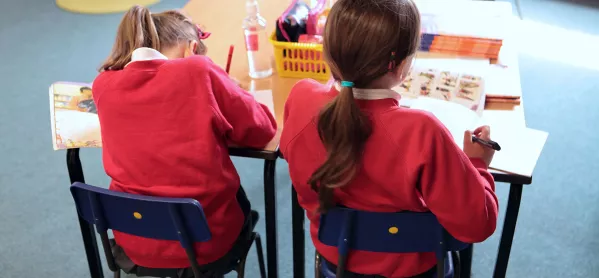- Home
- How to support pupils with adverse childhood experiences
How to support pupils with adverse childhood experiences

Almost half of children in the UK have experienced at least one adverse childhood experience (ACE) and one in 10 have experienced four or more.
ACEs are traumatic experiences that occur before the age of 18 and are remembered by survivors throughout the rest of their lives. Such experiences include emotional, sexual and physical abuse, and being raised in a household where there is alcohol misuse, mental illness, domestic violence, parental separation, drug addiction or familial imprisonment.
Evidence shows that children who experience adversity in childhood are more likely to perform poorly in school, develop anti-social and health-harming behaviours, be involved in crime, suffer poor mental and physical health. And they are less likely to become productive members of society. Often, the greater the number of ACEs, the greater the repercussions.
What the research says: The ACEs campaign - cause for worry or celebration?
Opinion - for: Why I celebrate the ACE-aware movement’s impact
Opinion - against: Why I worry about the ACE-aware movement’s impact
Personally speaking, I am in that “more than four” category - remarkably, I have turned out all right, but it was not easy. I was fortunate to have a few great teachers and an education system that accommodated my challenging behaviour.
These teachers had the time to eat their lunch with me, teach me how to knit and play the guitar, and channel my ability to throw chairs across the room into throwing a javelin for the county. And they had the freedom to say “go and run around the field for 15 minutes” when they could see I was getting ready to fight.
Because of their kindness, and despite a few exclusions, I passed some exams and went on to train as a teacher; I then spent the next 20 years trying to do for my children what those teachers had done for me.
But as I moved from school to school, I became increasingly frustrated with the rules and regulations that prevented me from doing what I knew was necessary to meet the needs of these children.
Hopefully, this is beginning to change. Information about ACEs is appearing everywhere in the UK. Scotland is determined to become the first ACE-Aware Nation, Wales is hot on its heels, and so too are areas in Ireland and England.
Traumatised pupils are ‘less able to learn’
People are discussing ACEs on social media - many are grateful for how this knowledge helps them to make sense of their lives, others are unhappy about labelling people with ACE “scores”. Surely, though, what is most important is that we are talking about the extent to which many of our children and young people are suffering.
Children with a high number of ACEs are in often in pain. They are struggling to regulate themselves, their emotions and their behaviour. They don’t feel safe or as though they belong. They have few positive relationships. They find it hard to trust others and they are less able to learn.
This is a challenge that cannot be resolved quickly and, as is so often the case, schools are well-placed to begin this work. But addressing ACEs requires a whole-school approach and often a substantial shift in thinking.
Everyone in the school - including lunchtime supervisors, the caretaker, office staff and teachers - needs to understand that behaviour is communication. And that, often, aggression, daydreaming, defiance, rejection and withdrawal are actually hiding fear, distress, pain, confusion and worthlessness.
So, in response, schools need to become ACE-aware, attachment-aware and trauma-informed to create safe environments for our children, and build supportive and trusting relationships with them. Schools need to teach these young people the skills to regulate their disregulated bodies so that they can begin to manage their emotions and behaviour, and get to a place where they are ready to learn.
Policies and practices need to evolve to accommodate and help these children heal rather than causing them further harm by excluding and rejecting them. Schools need to understand the impact working with these children has on staff and take care of them accordingly. Both children and adults need to cultivate resilience, and schools need to move towards restorative practices rather than punitive behaviour policies.
Of course, this will not happen overnight - we need to be in it for the long haul. But there is plenty of research to show that a shift like this in our thinking and practice will lead to better outcomes for our children, their families and our teachers, both in the short and long term.
Lynn Miles is a lecturer in education at Teesside University, which offers related ACE short courses, whole-school CPD and, from September 2019, an education MA in trauma-informed practice
Keep reading for just £1 per month
You've reached your limit of free articles this month. Subscribe for £1 per month for three months and get:
- Unlimited access to all Tes magazine content
- Exclusive subscriber-only stories
- Award-winning email newsletters